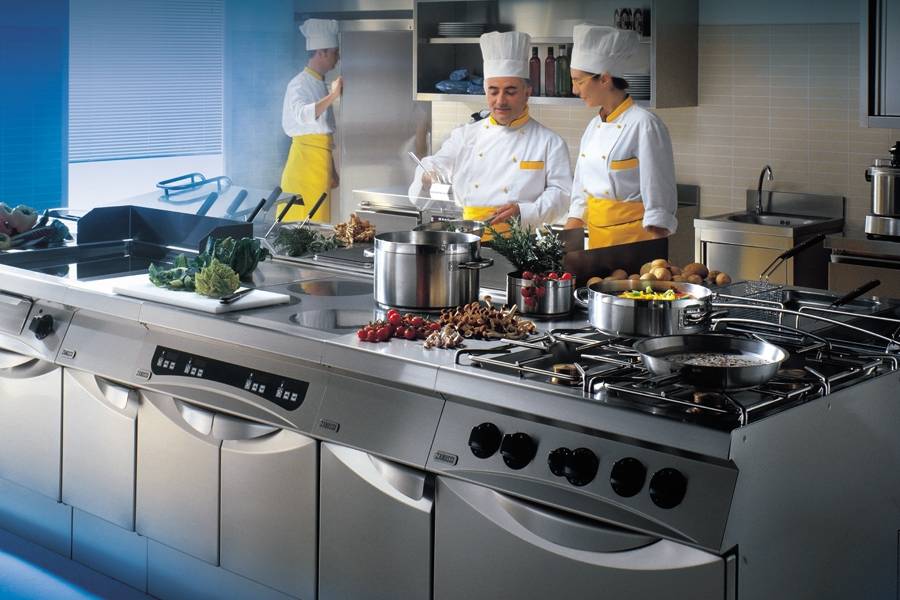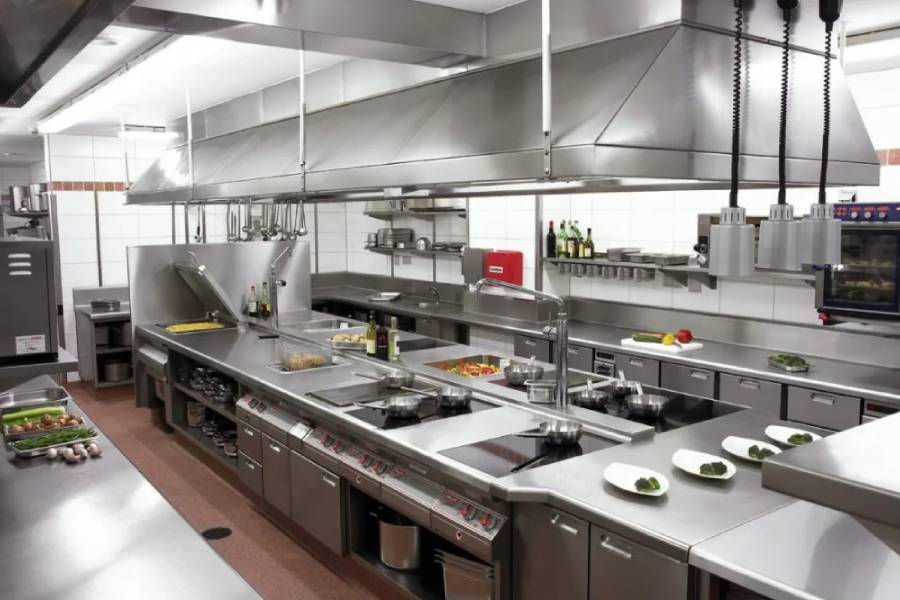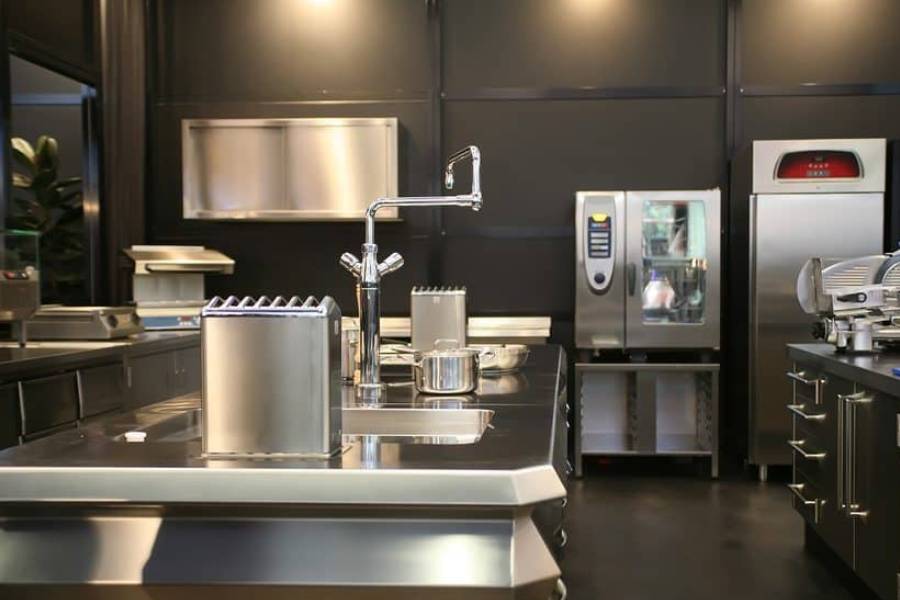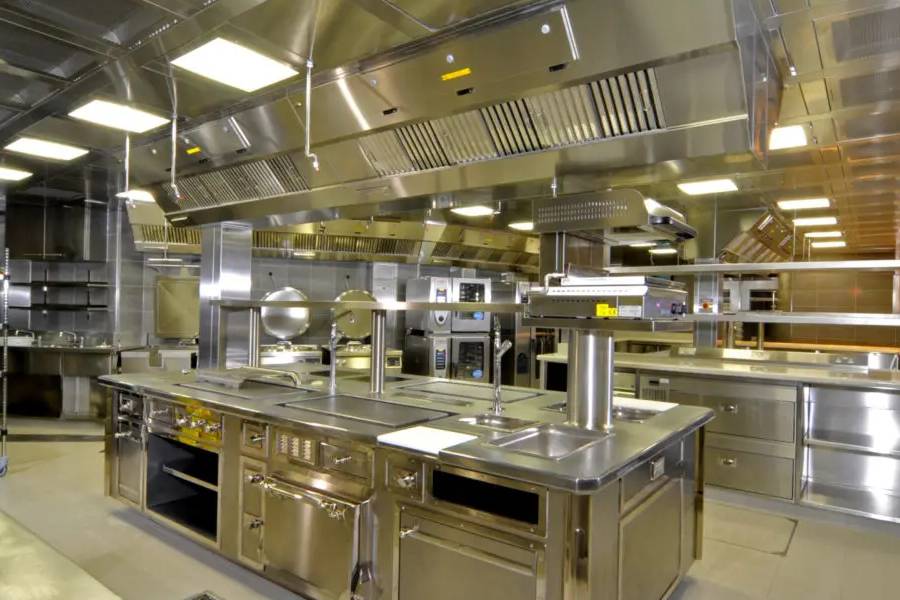
In the dynamic culinary landscape of the UAE, where hospitality is central to culture and economy, the commercial dishwasher has become an indispensable tool in kitchen efficiency and sanitation. This transformation is not just about washing dishes; it mirrors the UAE’s broader embrace of cutting-edge technology, heightened environmental consciousness, and stringent health protocols, especially pertinent in a region known for its luxurious hotels, bustling restaurants, and vibrant food scenes.
As we delve into the evolution of commercial dishwashers, we will explore how technological innovations have revolutionized these machines, making them faster, more energy-efficient, and capable of meeting the high hygiene standards demanded by the UAE’s diverse and fast-paced hospitality sector. From advanced water-saving technologies to automated systems that ensure spotless results while adhering to eco-friendly practices, the journey of commercial dishwashers in the UAE is a testament to the region’s commitment to sustainability and excellence in culinary services. This exploration will not only highlight the technical advancements but also reflect on the impact these have on operational efficiency, resource conservation, and the overall dining experience in the country.
Technological Advancements
The technological advancements in commercial dishwashers have significantly transformed their functionality and efficiency, making them indispensable in modern commercial kitchens. Here’s a detailed look at these advancements:

Advanced Filtration Systems
Modern commercial dishwashers feature sophisticated filtration systems that play a crucial role in maintaining the cleanliness of the wash water. These systems effectively trap and remove food particles, preventing them from being redeposited on dishes during the wash cycle. The filtration process typically involves stages, including pre-filtering to catch larger particles and fine filtering for smaller residues. This ensures the water used in each wash cycle is clean, leading to consistently spotless and hygienic dishware. Advanced filtration improves cleaning results and reduces the need for frequent water changes, enhancing water conservation and efficiency.
High-Temperature Wash Cycles
High-temperature wash cycles are another critical feature of contemporary commercial dishwashers. These cycles heat water to temperatures exceeding 180°F (82°C), the threshold necessary for sanitizing dishes and utensils effectively. The high heat helps break down grease and stubborn residues, ensuring thorough cleaning. More importantly, it plays a vital role in killing bacteria, viruses, and other pathogens, adhering to strict hygiene and health standards. This capability is especially crucial in commercial settings like restaurants and hospitals, where sanitation is paramount. Integrating high-temperature washing also aligns with food safety regulations, providing additional protection against foodborne illnesses.
Automated Detergent Dispensing
Automation in detergent dispensing represents a significant technological leap in the design of commercial dishwashers. This feature allows for the precise measurement and release of detergent, ensuring that each wash cycle uses the optimal cleaning agent. Automated dispensing systems are calibrated to the load size and degree of soiling, which maximizes cleaning effectiveness while minimizing waste. This improves the wash quality and contributes to cost savings and environmental sustainability by reducing the excess use of detergents and chemicals. Furthermore, the automation ensures consistency in cleaning performance, reducing manual monitoring and adjustment dependency.
These technological advancements in commercial dishwashers enhance their cleaning effectiveness and operational efficiency. They enable faster, more reliable cleaning cycles that meet the rigorous hygiene standards required in commercial settings. The combination of advanced filtration, high-temperature wash cycles, and automated detergent dispensing ensures that these machines can handle the demanding workload of commercial kitchens while providing superior cleaning results and adhering to environmental and health standards.

Hygiene and Sanitation Standards
In commercial kitchens, hygiene and sanitation are not just priorities but mandates, with dishwashers playing a pivotal role in maintaining these standards. Here’s an in-depth look at how these appliances are designed to meet stringent health and safety regulations:
NSF Certification
NSF International sets globally recognized standards for food safety and public health. A dishwasher with NSF certification has been rigorously tested to meet specific sanitation and public health protection standards. This certification is crucial as it guarantees that the dishwasher can achieve and maintain the necessary sanitizing temperatures throughout the wash cycle, effectively eliminating microbial threats. The certification process involves regular inspections and testing of the dishwasher’s performance, including its ability to reach and maintain high temperatures, its material quality, and its design for easy cleaning and preventing food particle buildup.
Sanitizing Rinse Temperatures
To comply with health regulations, modern commercial dishwashers are equipped to maintain rinse temperatures at or above 180°F (82°C). This high-temperature rinse is critical for sanitizing dishes and utensils, ensuring they are free from harmful bacteria and other pathogens. Maintaining such high temperatures during the rinse cycle is key to meeting health department requirements and ensuring that the kitchen adheres to the highest cleanliness and food safety standards.
Impact on Commercial Kitchens
Adherence to these hygiene and sanitation standards is of utmost importance in commercial settings, where kitchen practices directly impact consumers’ health and safety. Regular inspections and adherence to these standards help prevent foodborne illnesses and ensure that kitchen operations comply with legal and health requirements. Compliance with NSF certification and maintaining proper rinse temperatures protect customers and enhance the establishment’s reputation, signaling a commitment to high-quality standards and safety in food preparation.
Operational Considerations for Businesses
Modern commercial dishwashers offer significant operational benefits to businesses, especially in the hospitality sector. Here’s a closer look at these advantages:
Faster Cycle Times
Modern dishwashers have improved efficiency, translating to faster cycle times. This rapid cleaning capability allows kitchens to process more dishes in less time, facilitating smoother operation during peak hours. Fast cycle times mean that dishes, glasses, and utensils can be quickly cleaned and returned to use, reducing the need for large inventories of these items and enabling kitchens to handle higher volumes of diners without delays.
Reduced Labor Costs
Contemporary dishwashers’ automation features reduce the need for manual pre-washing and re-washing, which decreases labor hours and costs. Staff can focus on more critical tasks rather than spending time on the dishwashing machine. This efficiency optimizes the workforce and contributes to a more streamlined kitchen operation, minimizing the potential for errors and enhancing overall productivity.
Lower Utility Expenses
Energy- and water-efficient commercial dishwasher models help decrease monthly utility bills. These dishwashers are designed to use less water and energy per cycle without compromising cleaning quality. Reducing water and energy consumption leads to cost savings and aligns with environmental sustainability goals, reducing the business’s carbon footprint.
These dishwashers are particularly beneficial for restaurants, hotels, and catering companies. They allow these establishments to maintain high hygiene and service standards while minimizing operational costs. Integrating modern dishwashers into their operations supports business growth by enhancing efficiency, reducing unnecessary expenditure, and ensuring customer satisfaction through timely and effective cleaning processes.

Product Range and Features
The commercial dishwasher market offers a diverse range of products to meet the varying needs of businesses, from compact under-counter models for small cafes and bars to large conveyor belt systems for bustling hotels and dining facilities. Here’s a synthesis of the product range and features, integrated with specific examples and prices to give a comprehensive overview:
Under-Counter Models
- Ideal for small spaces: These dishwashers fit under the counter, saving valuable space in smaller establishments like cafes or bars.
- Price range: An under-counter dishwasher costs 5,563.95 AED, indicating its affordability for smaller businesses or those with limited space.
Conveyor Belt Systems
- High-volume washing: Perfect for larger operations, these dishwashers can handle a high volume of dishes with their conveyor belt system, moving dishes through different wash stages.
- Price range: A Conveyor Dishwasher with a Dryer, for instance, is available for 51,450.00 AED, reflecting the investment required for high-capacity, efficient cleaning operations.
Hood Type Dishwashers
- Versatile and efficient: These are suitable for various commercial settings and offer efficient cleaning under a hood mechanism.
- Price range: Prices vary, with options like the Hood Type Dishwasher available for 7,245.00 AED, catering to mid-sized to large kitchens.
Special Features and Considerations
- Programmable wash cycles: Allows customization according to the specific cleaning needs.
- Adjustable rack configurations: Accommodate different sizes and types of dishes and utensils.
- Special wash modes: Ensure thorough yet gentle cleaning for delicate items.
By integrating these features and price points, businesses can select dishwashers that fit their operational scale and budget and align with their efficiency and hygiene standards. Whether it’s a small cafe looking to maximize kitchen space with a compact under-counter model or a large hotel needing the robust capacity of a conveyor belt system, the market offers tailored solutions to support the hygiene and operational efficiency of diverse culinary establishments in the UAE.
Future Trends and Innovations
The commercial dishwasher market is on the brink of a new era with the advent of Internet of Things (IoT) integration and advanced water recycling technologies. These innovations are set to redefine the standards of efficiency, hygiene, and environmental sustainability in commercial dishwashing.

IoT Integration for Remote Monitoring
IoT technology allows for the remote monitoring and management of dishwashers, offering unprecedented control and insight into their operation. With IoT integration, restaurant managers and technicians can
- Monitor cycle times, detergent levels, and energy consumption from anywhere, ensuring optimal performance.
- Receive immediate alerts for malfunctions or maintenance needs, minimizing downtime and operational disruptions.
- Adjust settings remotely to respond to varying loads and operational demands, enhancing efficiency and reducing waste.
This level of connectivity and control can lead to more proactive maintenance, optimized resource use, and, ultimately, lower operational costs.
Advanced Water Recycling Technologies
Water recycling technologies make commercial dishwashers more sustainable. These systems can:
- Filter and reuse water from previous cycles, drastically reducing the total water consumption of the dishwasher.
- Employ advanced filtration and purification processes to ensure the recycled water meets health and safety standards for cleaning dishes.
- Save on water bills and contribute to environmental sustainability by lessening the demand for freshwater resources.
Implications for the Future
These technological advancements promise to push the boundaries of what commercial dishwashers can achieve. IoT integration offers enhanced operational efficiency and machine longevity, while advanced water recycling aligns with global sustainability and resource conservation trends. Together, these innovations will improve the operational aspects of dishwashing in commercial kitchens and contribute to broader environmental goals by reducing waste and conserving water.
In conclusion, the evolution of commercial dishwashers is moving towards a future where efficiency, hygiene, and sustainability are interconnected and enhanced through technology. This progression from simple, manual units to sophisticated, energy-efficient machines equipped with smart technologies and eco-friendly features reflects broader trends in the commercial kitchen equipment industry, aiming to meet the growing demand for solutions that are both effective and sustainable.